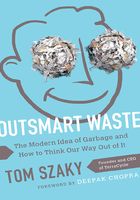
The Natural Controls of Chronic Consumption
Where we are today is entirely natural, and, in a way, it is built into our DNA, as the objective goal of all living organisms is to live and grow, both as individuals and as a species. These innate desires—some of the fundamental cornerstones of sustaining life—are met by gathering food, building a home, and reproducing.
Have you ever been stuffed after a big dinner only to find yourself downing a large piece of cheesecake that could have served as a meal in and of itself? In all living things, as in humans, the desire to consume is largely uncontrolled. If you put a big pile of sugar in front of a healthy mouse, it will eat well beyond what it needs to survive each day until it becomes obese and diabetic and eventually dies. The poor (yet sugar-rich) mouse simply cannot control itself from binging on easily attainable calories.
The reason why nature has sustained itself in relative harmony for millions of years is because a number of external factors control the ability (or inability) of that mouse to gain food, find shelter, and have offspring. Instead of a mouse’s controlling its individual consumption, its ability to consume is indirectly controlled by other organisms and nature at large. Even if the mouse wants infinite sugar, in nature it has to contend with predators, competition for sustenance, and a general lack of abundance.
Predators In nature our friend, the soon-to-be-obese mouse, has to worry about a whole host of other animals, from the friendly barn owl to the sly house cat—creatures that would love to make the mouse their supper. Humans have solved that problem by controlling, avoiding, or killing all of our natural predators and by preventing and combating disease (perhaps our last true predator). These days we don’t see wolves and bears roaming around our villages like they used to, and when we get sick we have better treatment than ever before.
Competition for sustenance Anytime there is food in nature, the “dinner bell” is heard (or smelled) by every potential diner in earshot (or perhaps “noseshot”), making it hard to gorge oneself into obesity. If you leave a pile of nuts and berries in the forest, within minutes a whole host of woodland creatures would get in on the party. The pile would be gone by the time late-comers arrived.
Because we effectively match the supply of goods with demand (and in most cases overproduce), humans simply don’t have competition for consumption in the way there is competition in nature. So when that new iPhone sells out, we simply make more (God forbid limiting supply!). It is bad business to run out of stock.
Lack of abundance In nature it takes time and hard work to find food. Just think about the energy you would expend to feed yourself if you were dropped in a forest while reading this book. First, I would apologize to you for the teleporting powers of this text. It would be very hard for you to find food, and you may not come out alive (unless you have trained or watched enough of those TV survival shows). Either way, the slimy grubs and the bark you would eventually have to consume wouldn’t be quite the same as ordering Chinese takeout, and they would be much harder to find than the delivery guy on his Vespa outside your door.
In the human system, with the amazing progress of science, we produce more food than we can possibly eat and more products than we can possibly enjoy. According to a recent study, 30 to 50 percent of the food we produce is thrown away due to its appearance or a lack of demand. That’s 1.2 billion to 2 billion tons of food per year being thrown out!
That’s 1.2 billion to 2 billion tons of food per year being thrown out! While that may seem staggering, we often throw away durable goods, such as clothing, before we have even used them, just because our tastes have evolved since we bought them.
While that may seem staggering, we often throw away durable goods, such as clothing, before we have even used them, just because our tastes have evolved since we bought them.
No predators, no competition, and uncontrolled abundance put us in a truly unique position. With few external controls to speak of, we are that gluttonous mouse, gorging itself on the proverbial pile of sugar.
But it doesn’t have to be this way. By rethinking how we produce and consume, we can live sustainably and return to a harmonious relationship with nature. As individuals we can impose on ourselves the same limitations that predators, competition, and lack of abundance have placed on our nonhuman earthly co-inhabitants. From there a personal shift in consumption habits can move outward through our friends and networks, ultimately affecting the larger society in the form of our culture and perhaps later our laws.
So far as ideas for where to start are concerned, nature itself seems to have some pretty good ones.